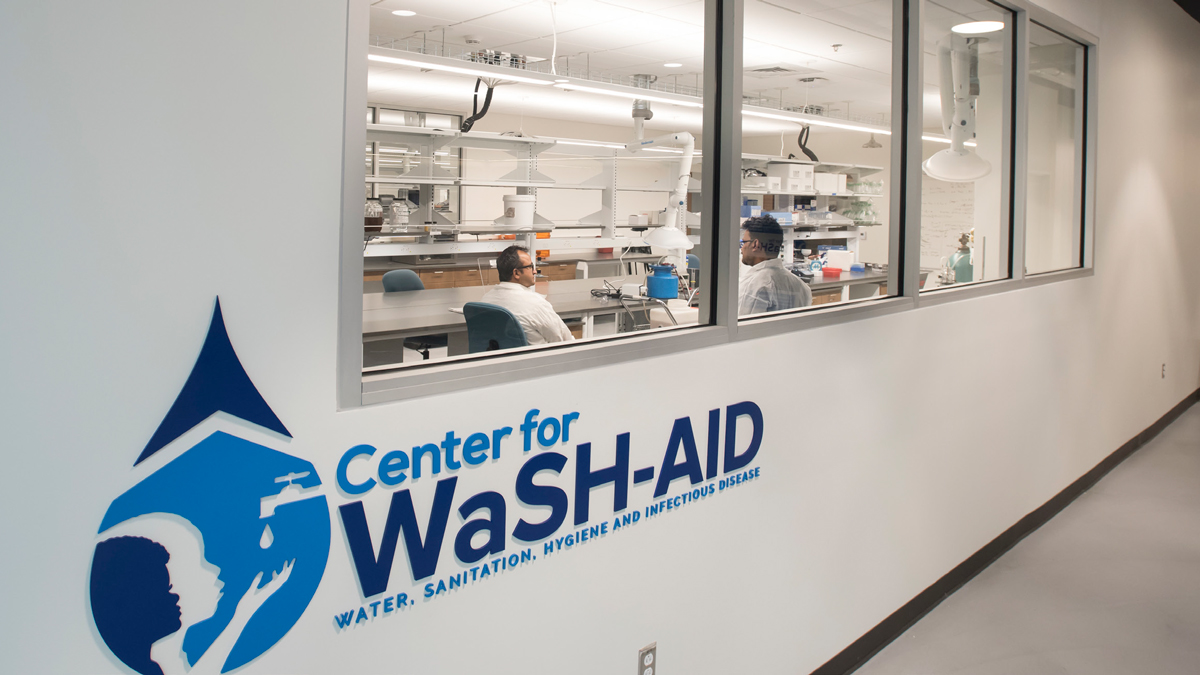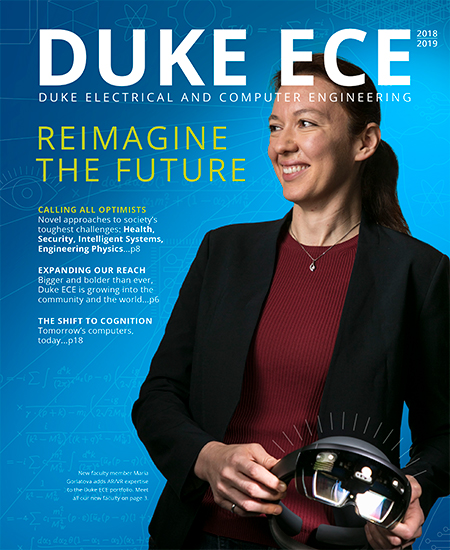October 24, 2018 | By Miranda Volborth
...through AI and data-driven approaches to sanitation, smart screening, disease detection and diagnosis

ENGINEERING A SMARTER TOILET
Around the world, 2.4 billion people lack improved sanitation. They share public or pit latrines, or have no facilities at all. It’s an issue that transcends sensibility alone; 315,000 children die every year from diarrheal diseases caused by poor sanitation and unsafe water. Duke-based Center for WaSH-AID (Water, Sanitation, Hygiene and Infectious Disease) is a multidisciplinary team developing prototype systems for safe, sanitary and affordable waste treatment, and is led by ECE Research Professor Brian R. Stoner and Professor Jeff Glass. WaSH-AID is a Bill & Melinda Gates Foundation grantee with over $10.7 million in awards to address on-site sanitation solutions, including the development of a better toilet, as part of the foundation’s “Reinvent the Toilet” challenge. Part of the WaSH-AID mission is to create a toilet that converts human waste into burnable fuel, stored energy and disinfected, non-potable water. The system will not require piped-in water, a sewer connection or outside electricity.
Learn how Duke ECE is transforming engineering and the world in the ECE: Reimagine the Future publication.

“One of the exciting aspects of this work is the integrated approach to solving complex, high-impact sanitation problems; from the basic research that informs the user-centered design, all the way to constructing a complete engineering prototype,” said Glass.
RTI International is collaborating with Duke to test the off-grid toilets in communal spaces in India, including a women’s dormitory at a textile mill in Coimbatore, and will soon expand to a township in South Africa. The team recently implemented technology to remotely control and monitor toilet operation, and envisions that
eventually the system could be used to detect emerging pathogens and prevent disease outbreaks in crowded areas—creating a sort of “Internet of Toilets.”
“We can save lives, improve child health and ensure greater dignity, privacy and personal safety, particularly for women and girls,” Stoner said.
--
Excerpt from ECE: Reimagine the Future | 2018-2019
